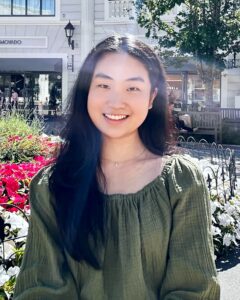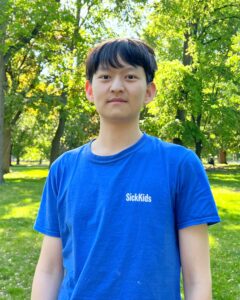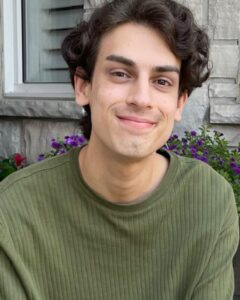Anne Steacy Biomedical Health Stream
The Anne Steacy Biomedical Health (BH) stream is targeted towards students with an interest in Life Sciences and scientific research. Students examine some of the most challenging issues that confront modern science around human health. From the understanding of disease mechanisms through the development of innovative therapies, the pace of scientific discovery is accelerating towards greater understanding at the cellular level of what constitutes “health” and how it can go wrong.
Students may be interested in this program if they would like to examine the scientific principles underlying contemporary issues in health science and use these as a platform that builds towards understanding the process of scientific discovery from initial idea to public dissemination of the results. Only students who are in the life science admission category are eligible for the BH stream is limited to students who are entering the life science program.
This stream is sponsored by Anne Steacy and complemented by the Basic Science Departments of the Faculty of Medicine, the University of Toronto Affiliated Hospitals and by programs such as the Human Biology Program of the Faculty of Arts & Science.
STREAM REQUIREMENTS
Students in the Biomedical Health stream enrol in two seminar credits in their first year as part of the typical 5.0 credit load in first year. These two courses include: TRN125Y1: Contemporary Issues in Health Science and TRN225Y1: The Art of Health Discovery. Each of these courses amounts to 1.0 FCE and will continue throughout the fall and winter semesters. To learn more about each course, click below:
AFTER TRINITY ONE
Students who complete the Biomedical Health stream are well-equipped to pursue further studies in related academic disciplines as they have gained skills in critically analyzing science research and reading/writing academic papers. Students may apply concepts and skills learned in the BH stream during upper year studies of their life science degree.
Students from this stream will typically be those who are looking to graduate with a major or specialist degree from one of the Basic Science Departments of the Faculty of Medicine, or from the Human Biology Program in the Faculty of Arts & Science. The Biomedical Health stream is particularly suited to students who may be considering a career in medicine or medical research.
STREAM MENTORS
Your stream mentors will support you throughout the academic year by hosting workshops and activities to assist you with course assessments and to facilitate community building. They will be your first point of contact should you have any academic concerns or questions about student life! Meet your stream mentors below!
|
Christina Tao Program(s) of Study: Neuroscience (Major), Pharmacology & Toxicology (Major), Psychology (Minor) Christina found participating in the Trinity One program an unparalleled and enriching experience in her first year. In weekly seminar classes, through focusing on contemporary health issues and composing an artificial scientific manuscript, she developed a profound and vivid understanding of the scientific process in today’s ever-changing world. As a first-year Life Sciences student, she genuinely appreciated the opportunity to improve her research, critical thinking, and public speaking skills that are invaluable in her future academic pursuits. Christina extends a warm welcome to all incoming Trinity One students and she wishes for each student to embrace the opportunities that Trinity One offers. |
|
Program(s) of Study: Biochemistry (Specialist), Mathematics (Major), Statistics (minor) TRN125 and 225 undoubtedly stand out as the most useful courses Gabriel has taken during first year. On top of making valuable friends, he’s enjoyed learning several useful skills such as evaluating scientific literature, performing literature reviews, writing a research paper, and engaging in seminar presentations. The applicability of these skills has helped earn him the honor of preparing two manuscripts for submission to high impact factor journals as well as gaining other opportunities typically reserved for upper-year students. Gabriel is thrilled to be a Mentor this year. He can’t wait to share his thoughts on first-year undergrad, research life, study strategies, and anything else that incoming Trinity One students may ask him. |
ALUMNI TESTIMONIALS
Hear from graduates of the Trinity One program – Biomedical Health stream!

 Gabriel Ma
Gabriel Ma





